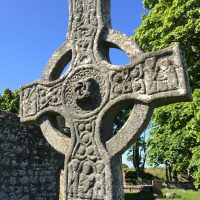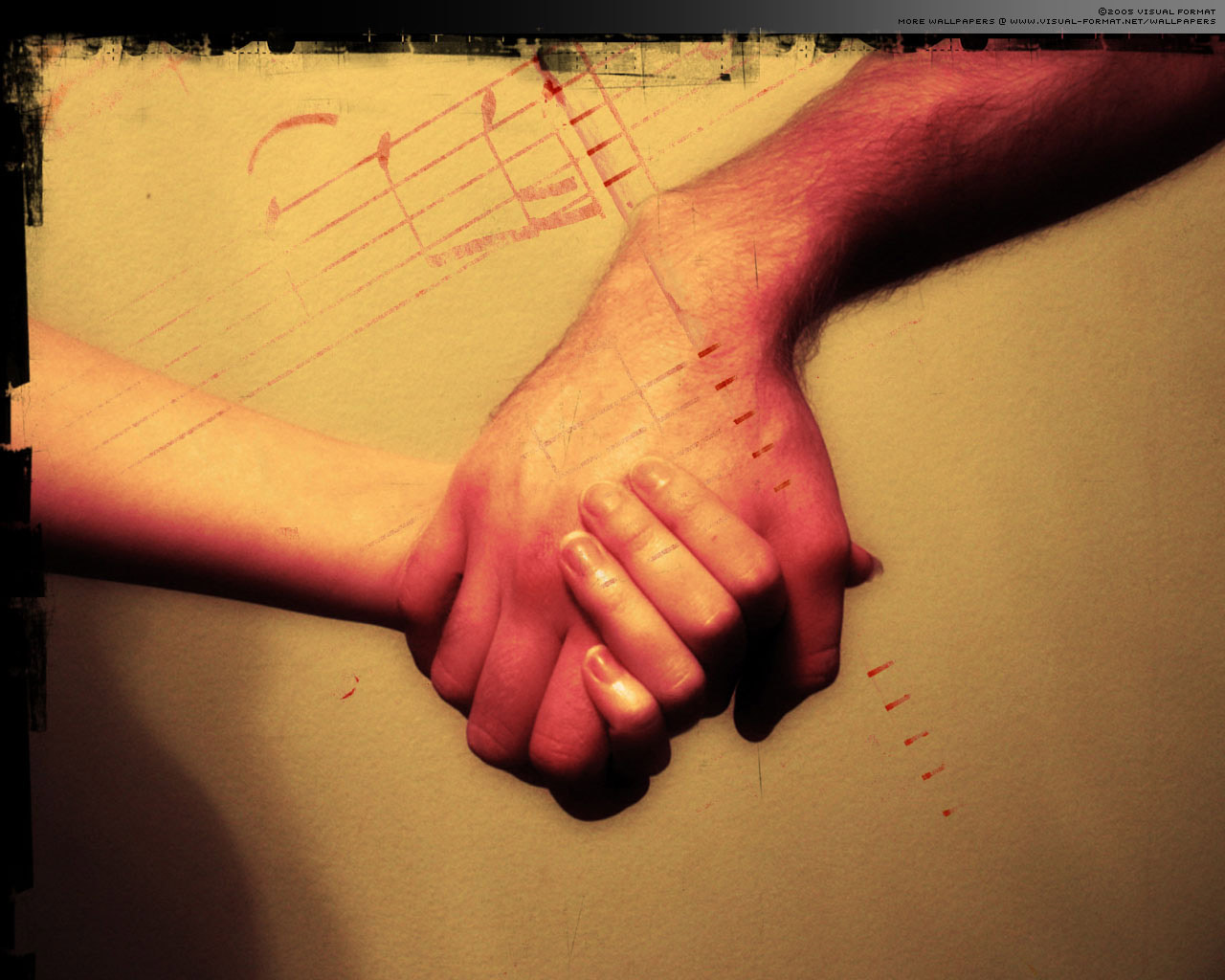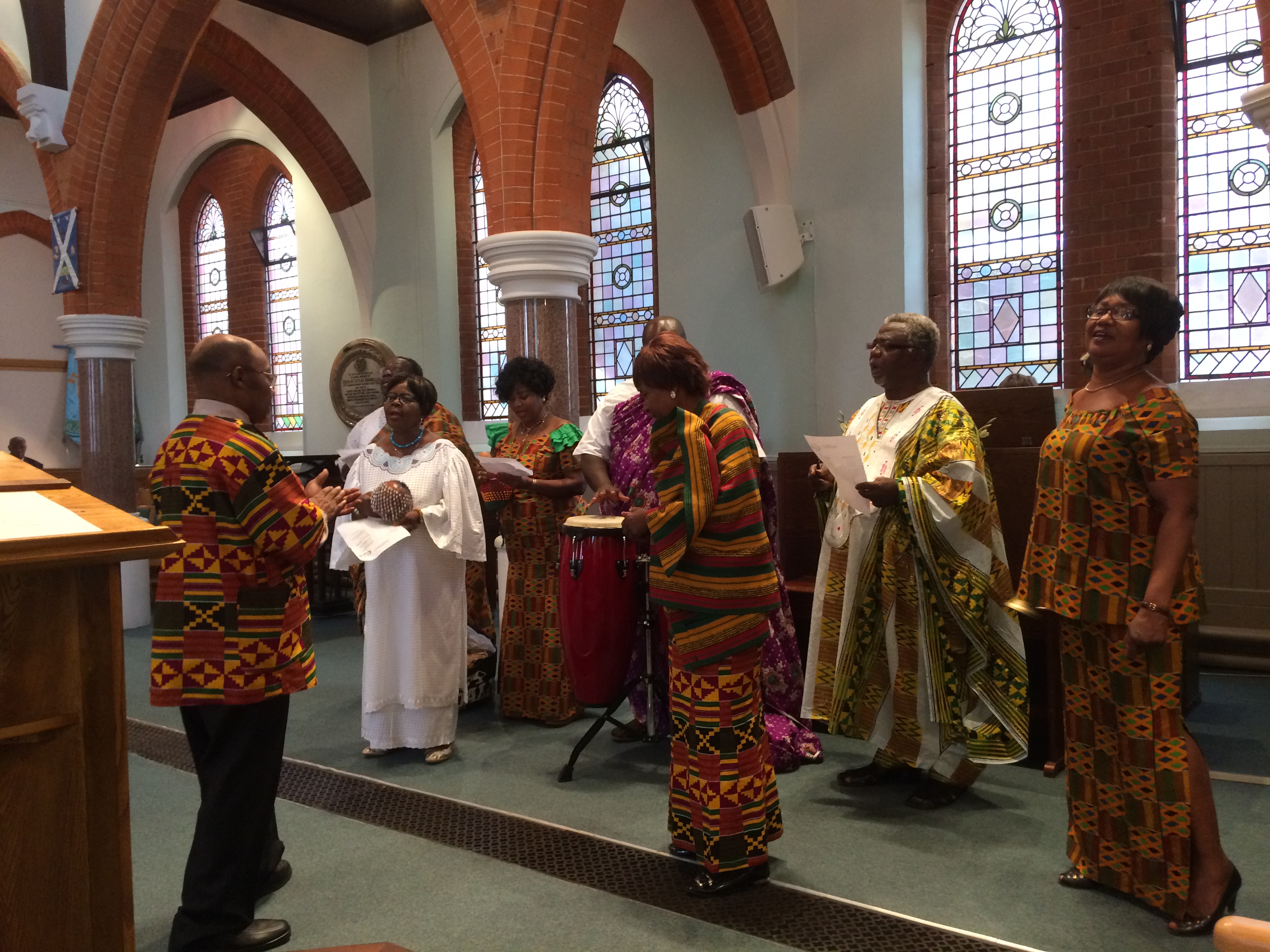Sermon given 21 April 2024 at St. Andrew’s by the Revd Sue McCoan
Readings:
Acts 4:1-12
John 10:11-18
The people believe Peter and put their faith in Jesus. But the captain of the temple guard, and the priests, arrest Peter in the evening and put him in custody overnight.
It was those same chief priests and the captain of the temple guard who did the deal with Judas (according to Luke’s gospel); those same people who sent the armed group, with Judas, to arrest Jesus in Gethsemane and put him in custody overnight.
Here we go again. Here is religious and civil authority, clamping down to the full extent of their power. They had managed to get Jesus killed; all they need to do now is to stamp out his followers too.
The next morning, the rulers and scribes assemble in Jerusalem, with Annas and Caiaphas and all the high priestly families, to question Peter and John. The same people, the same assembly, who gathered together the morning after the arrest of Jesus, to question him.
Here we go again. Right, Peter. You saw what we did to your teacher, your leader. You know what we’re capable of. Be afraid. Be very afraid.
When Jesus was arrested, Peter was very afraid. So afraid, that he denied he’d ever known Jesus. He’s not afraid now. Witness to the resurrection, filled with the Holy Spirit, Peter gives it to them straight: ‘Rulers of the people and elders, if we are questioned today because of a good deed to someone who was sick […], let it be known to all of you, and to all the people of Israel, that this man is standing before you in good health by the name of Jesus Christ of Nazareth, whom you crucified, whom God raised from the dead’.
Well! The elders and rulers weren’t expecting that. They hold all the power – or they thought they did – and here are ordinary, uneducated men, challenging them like equals. They are completely floored – the bit after our reading describes them having no idea how to respond. Where did that come from?! Peter has already given them the answer – it came from Jesus.
Let’s look at the power that Peter now has, in the name of Jesus – what kind of power is this? And what does that tell us about the power we have and how to use it? I want to point out three things.
First, the power that Peter has does not include any power of protection. The elders and rulers still have full control – they can do to him what they did to Jesus. Peter’s is not the boldness of someone who has won an argument or gained advantage, crowing over a former enemy. Peter is incredibly vulnerable here. His power is the inner power of conviction, of knowing that he speaks the truth, and that it is a truth that needs to be heard. So he will speak it, come what may.
This is the power that we see in someone like the late Alexei Navalny, who dared to speak out against President Putin. It cost him his health, his freedom, and ultimately his life, but he could not and would not stop.
The power of Jesus is a power of conviction, not of protection
The second thing to look at is what the power is used for. The rulers and elders would say that they use their power to keep the peace: to keep order within the country and within religion so that everyone can go about their normal life. It is one of the functions of leadership at that level. What they don’t say, and perhaps don’t even stop to recognise, is that keeping order means keeping the order as it is now, with them at the top. It means keeping the order within which some people have vast amounts of wealth or influence – or both, as the two often go together – and others have almost nothing.
It means keeping the order within which a man with disabilities spends every day of his life sitting at the Temple gate, unable to move, begging for money to survive.
We imagine that the worshippers who give him money think that they are doing a good thing, and indeed they are. But Peter and John see things differently. They don’t see an opportunity for giving money. They see a human being living at a minimal level – and they have something far more valuable than money; they can offer healing. ‘In the name of Jesus Christ of Nazareth, stand up and walk.’
A man who has never walked in his life finds his feet – and a whole new future opens up for him. Giving money kept him in his place; Peter and John give him the gift of access to places he can hardly imagine. This is a power that brings wholeness, that brings fullness of life, that opens up new horizons.
This is the kind of power we see at work in foodbanks, and night shelters, and job clubs, and so many voluntary organisations that seek not just to meet basic need, but to give dignity and to create opportunities for change.
The power of Jesus is a power of healing, not of control.
For the third aspect of power, we turn to our gospel reading. Jesus talks of himself as the good shepherd. The good shepherd, he says, is the one who will lay down his life for the sheep. If a wolf comes, the good shepherd will stand and fight, will defend the flock to the end. A hired hand, someone who is paid to do the job, is unlikely to be paid enough to justify that sort of risk, so they will run away.
Jesus, as the good shepherd of the flock of God’s people, cares enough about the flock to lay down his life for them – for us. Jesus is not being attacked by wolves. For most of his ministry, although the authorities are critical of him, they are not trying to kill him. Jesus chooses to lay down his life to defeat a much bigger enemy, the forces of evil in the world. He gives himself in death, so that he might give us life.
The power of Jesus is a power of self-sacrifice.
So we have three aspects of this power: it’s about conviction not protection; about healing not control; and it includes the power of self-sacrifice.
That’s a power that needs to be wielded with a considerable amount of maturity and integrity. So where do we come into this picture? What power do we have, and how do we use it?
One power that most of us have is the power to vote. We have elections coming up a week on Thursday for the Mayor of London and for members of the London Assembly, and there will be a General Election within a year. It’s not for me to tell you who to vote for, but I am going to urge you to vote. Use the power you have. Remember if you are voting in person to make sure you have photo id – a driving licence, passport or travel pass – and take it with you to the polling station.
It’s too late now to apply for a postal vote, but you can still apply for a proxy vote – for someone to vote on your behalf – up to next Wednesday, 24th. And if you don’t have photo id, you have up till 5pm on Wednesday to apply for a free certificate.
You should have had, through the post, a copy of this booklet. There are full instructions on how to vote, and a mini-manifesto from each mayoral candidate. I encourage you to read them. And read between the lines. Every candidate says they want a better London. Every one says they want affordable homes, safer streets, better transport. Of course they do. But some people’s idea of better transport is better public transport and clean air; others want more freedom for motorists. There’s a balance needed. A promise to treat everyone with a colourblind policy might well make it hard to challenge discrimination and bias. A candidate who says they are free of party politics may not have the backing to get anything done. Read carefully. Ask yourself: which people would benefit from this policy? Which would lose out? And is this candidate likely to be a good shepherd to all the people of London?
Voting is, of course, an individual matter. What about the power we might have together, as a church community?
The Christian church has a bad history of using power to judge and condemn people. But it also has the power to do tremendous good. I know people here contribute to the foodbanks and night shelters and other good things that I mentioned earlier. As a congregation, we are quite small in number. But one thing we do have is a building we can use. We’ve always used it for worship, and let out rooms to provide income, but now we are also using the building as a way of interacting with the community.
I’m thinking of the eco church project, all the work that has been done on energy audits and so on which has involved centre users as well as church members. I’m thinking of the pocket allotment project, an initiative from our neighbours, to transform that little slightly overgrown patch of land on the Aston Road side into smart raised beds growing herbs and vegetables, grown by and for the people who live around us. I’m thinking of the new venture of Tea and Cakes on the first Thursday of each month, a way to meet people midweek; and an even newer venture of a display of Christian artwork in the reception area. Watch this space – or rather, the space between the kitchen and the accessible toilet.
These initiatives come out of our conviction; they bring wholeness in all sorts of ways; and es, they might mean putting ourselves out a bit, and huge thanks to everyone who has put work in so far. And all these things make a statement: that we care about our community; we care about our planet; we care about our Centre Users. And they also say: and the reason we care is because we do all this in the name of Jesus.
We are witnesses to the resurrection. We have the Holy Spirit. May we also have the courage of Peter, to use our power for good.
In the name of Jesus,
Amen.





